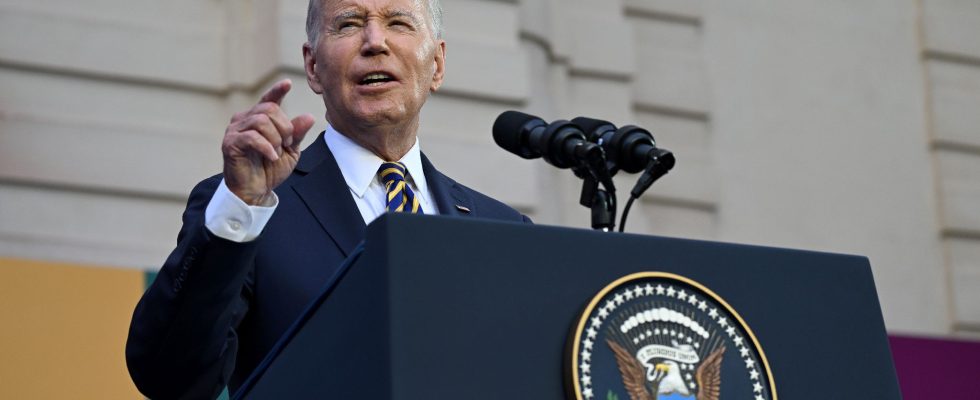The relationship between the United States and China has become even more strained. In question: a decree signed by the American president, Joe Biden, on Wednesday August 9, concerning new technologies. American investments in this area will now be controlled if they are directed to “problematic countries” such as China. They may be prohibited in certain cases. Transactions related to artificial intelligence and quantum computing will be particularly scrutinized.
The goal is to “defend American national security,” the Treasury Department said in a statement. Concretely, the United States wants to prevent its investments from helping Beijing to modernize its army. “This executive order is intended to limit U.S. transactions in companies involved in this effort,” a government official explained during a telephone press conference.
China “extremely unhappy”
Beijing’s reaction was not long in coming. China is “extremely unhappy” and “strongly opposes the United States’ insistence on introducing investment restrictions,” a Foreign Ministry spokesperson said in a statement. He added that his country was “very concerned” about the situation and reserved “the right to take action”.
This is not the first time that the United States has sought to thwart Chinese influence. Last October, they announced to tighten export controls on high-end semiconductors “used in military applications”. The Netherlands and Japan, also producers of semiconductors, had followed suit. China responded by restricting exports of certain rare metals needed to manufacture semiconductors.
A “decoupling” of the two economies
Some American officials are also calling for a “decoupling” of the two economies to reduce Washington’s dependence on the Asian giant. But Treasury Secretary Janet Yellen, visiting China in July, assured that the measures were “very targeted and centered on a few sectors”. The objective “is not to cause a complete disruption of American investments” in China, she insisted.
The “deregulation” may have already begun. Nicholas Lardy, researcher for the PIIE (Peterson Institute for International Economics), told AFP that the decree signed by Joe Biden was “a big step forward”.
“It is no longer just about restrictions on exports but now also on capital, which has not happened so far”. Emily Benson, project director on trade and technology for the Center for Strategic and International Studies (CSIS), adds: “It is possible that […] some companies are thinking twice about what kind of investments they could make, which could reduce two-way investments in the long run.”
